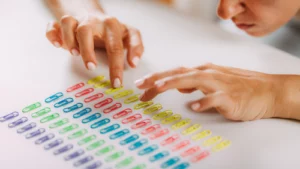Addiction is a chronic and complex disorder defined as an inability to regulate drug or alcohol use and recurring relapses. While addiction impacts behavior control, there is hope for recovery. By learning coping mechanisms, you can regain control of your addiction to improve your health and overall well-being. Understanding how the brain contributes to addiction is essential. Specifically, understanding the interconnectedness of impulsivity and compulsivity as integral components of the addiction puzzle can be helpful.
In this article, we will cover the differences between compulsivity versus impulsivity, how each plays a role in addiction, and some management and treatment strategies for both.
Understanding Compulsive vs. Impulsive Behaviors
Understanding the concepts of compulsivity and impulsivity is essential in understanding addiction. Both compulsivity and impulsivity play important roles in addictive behaviors, yet they have distinctive patterns that contribute differently to the development of addiction.

How Impulsive Behavior Impacts Addiction
Impulsivity refers to a tendency to act without thinking ahead, reflecting, or considering the potential outcomes, especially when it involves taking risks. It involves engaging in behaviors without considering the potential consequences or weighing the long-term effects.
Impulsivity in addiction manifests in different ways. One way you can see impulsivity in addiction is in individuals engaging in spontaneous substance abuse driven by cravings or desires. This impulsive behavior comes from the brain’s reward system, which is activated by the euphoric effects of the substances.
Another way you see impulsivity in addiction is the difficulty of avoiding delaying gratification. Since most substances give immediate gratification, they can override rational thinking and decision-making. This leads to individuals struggling to avoid immediate rewards in favor of long-term goals, an inability to resist temptations, and being aware of the negative consequences of substances.
Impulsivity’s Role In Early Addiction
While both impulsivity and compulsivity play a part in the development of addiction, impulsivity plays a significant part in the early stages of addiction. Engaging in impulsive behaviors can lead to the beginning of addiction and the development of substance use disorders.
The impulsive decision to experiment with drugs or alcohol can be driven by curiosity, peer pressure, or a desire for new experiences. After first trying the substances, seeking immediate pleasure or relief overrides rational thinking, as individuals seek instant gratification. This impulsive behavior often lacks consideration for the long-term consequences, leading to potential risks to health, relationships, and overall well-being.
Types of Impulse Control Disorders
Multiple factors can cause a lack of impulse control. This can include environmental factors, social pressure, and if you have an impulse control disorder. There are five impulse control disorders to be aware of:
- Intermittent Explosive Disorder (IED): IED is a condition where individuals experience intense and impulsive episodes of anger and aggression. During these outbursts, the person may become violent or aggressive towards others, animals, or objects.
- Oppositional Defiant Disorder (ODD): ODD is a condition where individuals frequently get angry, irritated, or resentful. They often challenge authority figures, break rules, and blame others for their own problems.
- Conduct Disorder: This condition is described as ongoing behaviors that go against social rules. Individuals may show aggression towards people or animals, damage other people’s belongings, engage in lying or stealing, and break rules from a young age.
- Kleptomania: Kleptomania is characterized by the unnecessary stealing of items. Individuals may steal things and either give them away or discard them. The disorder is not primarily about the stolen items but rather about the irresistible urge to steal and the lack of control.
- Pyromania: Pyromania is a condition where an individual will repeatedly and purposefully set fires. This is accompanied by an obsession with fire or fire-related objects and an irresistible urge to set fires.

How Compulsive Behavior Impacts Addiction
Compulsion refers to a particular behavior or mental act that someone feels compelled to do in order to alleviate anxiety or stress. It’s an urge to perform a specific action, often motivated by the need to prevent a feared situation or to relieve the stress associated with obsessive thoughts.
Compulsivity in addiction involves an individual engaging in drug-seeking behavior. Compulsive behaviors can become ingrained into a person’s daily life and are nearly impossible to break. The repeated patterns of drug use can be triggered by situations that lead to extreme cravings and the inability to resist these cravings.
Once a person begins using, they can quickly lose control over the amount and frequency of the substance they use. Because they are seeking immediate gratification, the user will prioritize using substances above all else and ignore the negative consequences. This type of compulsive behavior is common to see in those deep in their addiction.
Compulsivity’s Role In Middle to Late Addiction
As the addiction grows and the habit of using becomes more ingrained into the daily routine, the purpose of using shifts. Instead of using substances for pleasure and recreational use, they are now being used because the fear of the consequences of not using them is significant. Compulsion is seen in this by the need to use so that you may not feel withdrawal symptoms. The repetitive behavior of continued drug use can lead to a loss of self-control and make it difficult to stop using.

Obsessive-Compulsive Disorder
Obsessive-Compulsive Disorder (OCD) is a mental health condition categorized by intrusive, obsessive thoughts and repetitive behaviors aimed at reducing anxiety. It’s not uncommon to see those with OCD who also struggle with substance abuse. A study published in 2010 found that out of 323 participants with OCD, 27% had a history of a substance use disorder. Of those participants, most reported that their substance abuse began when they experienced OCD symptoms for the first time. The two main elements of OCD are:
- Obsessions: These are uncontrollable thoughts or fears that can cause stress and anxiety. Some examples include an extreme need for order, a phobia of germs, or a fear of negative thoughts.
- Compulsions: As previously mentioned, compulsions are actions that someone feels compelled to do. Some examples include checking that something is turned off or on multiple times, collecting or hoarding items you do not need, or counting in a specific order.
How To Manage Impulses and Compulsions
Learning how to manage and treat the impulses and compulsions that come with addiction can be beneficial in overcoming the addiction. Many treatment centers offer programs that provide the tools and resources to gain control of addiction behaviors. These tools are typically coping strategies as you are reprogramming your brain to not give in to the impulses and compulsions. Some strategies used include:
- Utilizing cognitive behavioral therapy (CBT) to change thought patterns. This can include therapy techniques like psychotherapy, family therapy, and dual diagnosis treatment.
- Recognizing situations or people that may trigger the impulses or compulsions and learning to reduce the exposure to those triggers.
- Reducing stress and anxiety to lessen the need for substances.
- Taking better care of your physical and mental health to better fight off the urges to use.
MD Home Detox Can Help
Engaging in impulsive or compulsive desires can lead to drug addiction, leading to a poorer quality of life. This addiction can take over your life and cause many issues in life, such as strain on social relationships, financial problems, and negative effects on your physical health. If you find yourself giving in to these urges and falling into addiction, it’s time to get the help you deserve.
MD Home Detox specializes in medically-assisted detox to provide the first step in recovery. Our treatments are designed to be individualized and private, offering services that come right to your home. If medical detox isn’t something you need right now, call anyway, and one of our admissions agents can direct you to one of our clinical partnerships, where you can find resources for outpatient addiction treatment programs and mental health housing.
If you or a loved one are experiencing addiction, contact us today to learn more about our programs. We offer a fully-integrated treatment to ensure our clients receive the best care and resources possible for their recovery.

